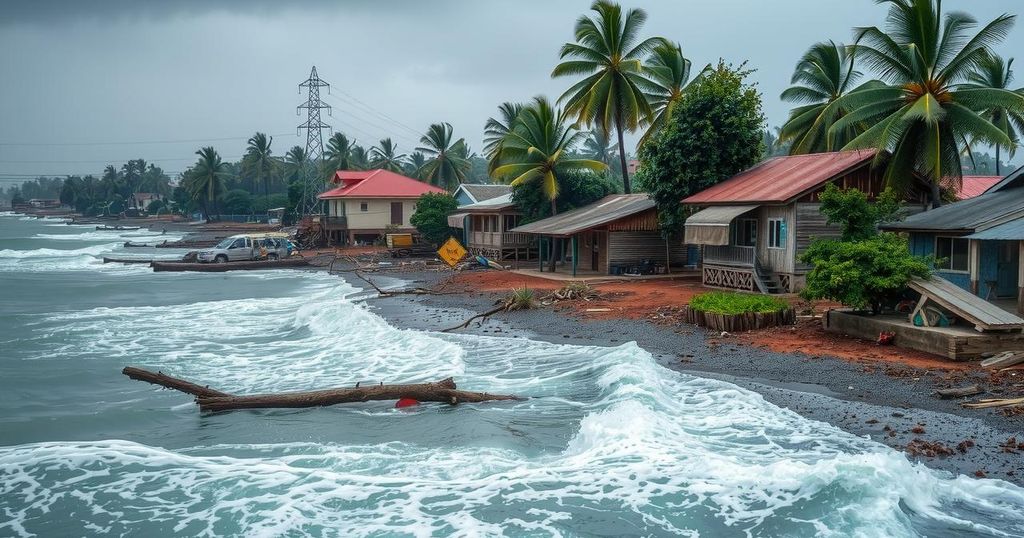Cyclone Dikeledi has killed three people and displaced over 5,200 in Madagascar, as reported by the IFRC and BNGRC. While Mayotte experienced minimal damage, the cyclone has raised concerns about further worsening conditions in Madagascar. Local Red Cross teams are providing assistance, following the recent devastation caused by Cyclone Chido that claimed at least 35 lives.
Cyclone Dikeledi has tragically resulted in three fatalities and has displaced over 5,200 individuals in Madagascar, as reported by the International Federation of Red Cross and Red Crescent Societies (IFRC) and the National Office for Risk and Disaster Management (BNGRC). Since its re-emergence in the southwestern region of Madagascar after crossing the Mozambique Channel, authorities have expressed concern regarding potential worsening weather conditions. While the cyclone previously approached the French territory of Mayotte, causing a red alert, it ultimately resulted in minimal damage in that area, despite some minor disruptions and flooding.
The IFRC, alongside local Red Cross teams, continues to monitor the situation, providing support and resources to those affected. Communities in the cyclone’s projected path have been advised to remain vigilant and adhere to safety recommendations. The impact of Cyclone Dikeledi follows closely behind Cyclone Chido, which devastated both Mayotte and parts of Madagascar less than a month prior, resulting in at least 35 deaths and displacing nearly 100,000 individuals. Cyclone Chido significantly hampered rescue efforts due to severe destruction in infrastructure, prompting warnings from local authorities about the potential rise in casualties as accessibility to affected areas remained constrained.
The context of this article centers on the severe weather events impacting Madagascar and its nearby territories, specifically Cyclone Dikeledi and its predecessor Cyclone Chido. Both storms have led to significant humanitarian crises, underscoring the vulnerability of these regions to tropical cyclones. The IFRC and local authorities have been at the forefront of responding to these disasters, highlighting the importance of disaster management and preparedness in minimizing loss of life and property. Recent cyclones have spotlighted the ongoing challenges faced in delivering adequate humanitarian aid and support in the wake of such natural calamities.
In summary, Cyclone Dikeledi has inflicted significant damage on Madagascar, leading to tragic loss of life and considerable displacement among the population. As the situation evolves, the efforts of authorities and humanitarian organizations like the IFRC remain critical in providing support for those affected. The recent history of cyclones in the region emphasizes the urgent need for robust disaster response mechanisms and ongoing community awareness to lessen the impact of such natural disasters in the future.
Original Source: www.aa.com.tr






